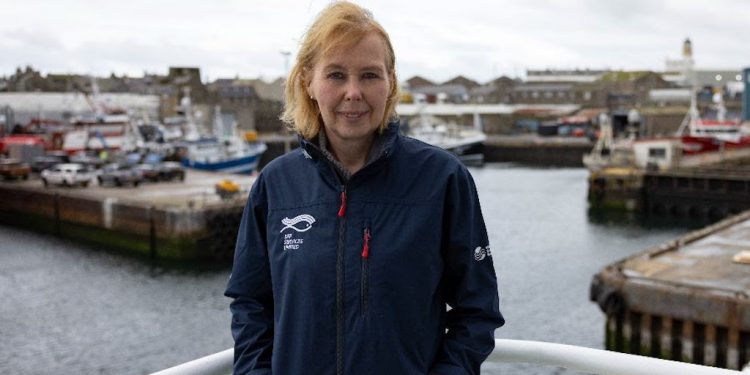A group of Australian fishing industry associations are set to learn from Scotland’s experience of living and working alongside the renewable energy sector.
The Western Australian Fishing Industry Council (WAFIC), the South Australian Northern Zone Rock Lobster Fishermen’s Association and Australian Government’s Fisheries Research and Development Corporation (FRDC), are funding a project to bring the Scottish Fishermen’s Federation CEO Elspeth Macdonald to Australia to share and learn from Scotland’s experiences with offshore renewable energy.
The expectation is that this exchange of knowledge will guide the development of a framework that encourages co-existence between offshore renewable energy and commercial fishing.
Darryl Hockey, WAFIC Chief Executive Officer said Western Australia’s commercial fishing industry is at the forefront of witnessing competition for resource access along the WA coastline.
‘Developing a framework informed by international experience will help ensure that the fishing sector can take an educated position on marine spatial planning, particularly in relation to the emerging offshore renewable energy sector. It will also help stakeholders understand the potential impacts and co-existence opportunities to help limit any future displacement of fishers, while supporting the economic and social viability of the fishing industry,’ he said.
‘This project, together with Mrs Macdonald’s visit, is a great opportunity to ensure Western Australia’s local seafood supply chain remains a key industry in coastal communities.’
This is alongside a national research project launched in Western Australia to understand the cumulative impacts on the fishing industry arising from the emerging offshore renewable energy sector, increasing marine park sanctuary zones and the expansion of industrial coastal developments.
WAFIC, with funding through FRDC, is undertaking research to review and quantify the cumulative effects of offshore developments, to better understand their impact on commercial and recreational fishing, as well as aquaculture, charter, and indigenous fishing.
The commercial fishing industry plays a vital role for the community by providing food security and supporting regional communities. Under the current model there is an imbalance between planning, legislation and mechanisms governing access to marine environments and aquatic resources resulting in some marine users being more heavily impacted than others.
According to WAFIC, there is an opportunity before offshore wind farms are placed in Australian waters to adequately identify the impacts, by reviewing the literature and learning from other international experiences, to provide an evidence-based understanding of the rapidly emerging offshore renewable energy sector. This research will also guide the development of a ‘co-existence framework’ for how new industries can work side-by-side and build long-term collaborative relationships with existing fishing sector stakeholders, to protect and sustain the benefits they bring to the Western Australian community. It is envisaged this framework could be adopted at a state or national level for future renewable energy projects or other coastal developments that impact aquatic resources.









